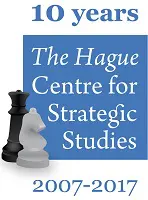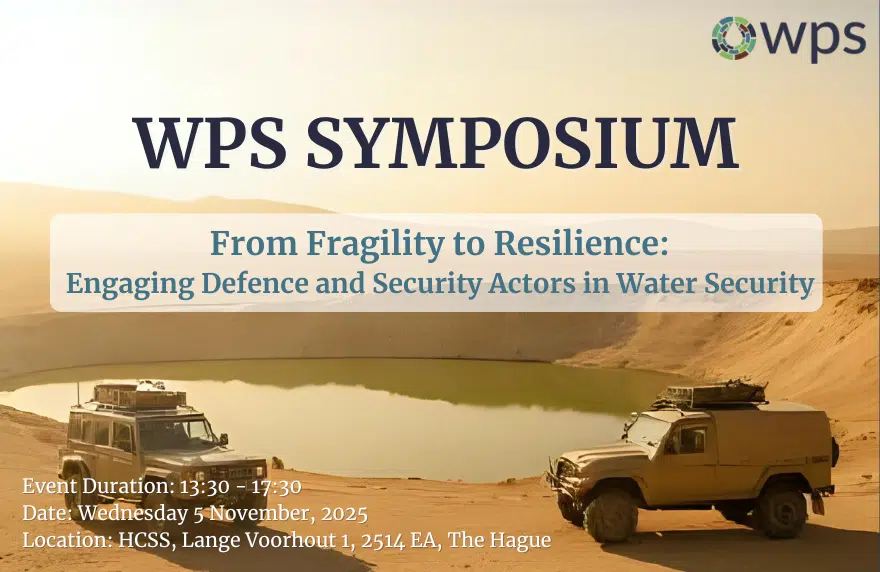It is notoriously difficult to measure the impact of think tanks. While they come in various shapes and sizes, most think tanks typically aim to help improve policy- and decision-making through rigorous, evidence-based and creative research and analysis. HCSS is no exception. We carry in ourselves the DNA of the three main organizations from whence the original HCSS (then still called the Clingendael Centre for Strategic Studies) team emerged: the technological/operations research genes from TNO; the rigorous policy analysis genes from RAND and the strategic analysis genes from Clingendael. When I personally look back at what I see as some of our most important accomplishments over the past decade in which we were able to successfully blend these genes to achieve real policy impact on defense and security planning, I’d single out three main ones.
The first one came relatively early in our existence. Based on a number of reports that we had written on what we saw as various lacunae in the overall Dutch national security setup, HCSS (then still CCSS) was asked to play a key role in the development of the National Security Strategy in 2007. This produced a genuinely new type of national security strategy that was not merely a political statement about prevailing policy priorities, but instead offered a pre-political, pre-bureaucratic analytic method that could help in adjudicating various national security claims (including for money). At the heart of the strategy was the national risk assessment method – an analytic process in which civil servants from across government and scientists and researchers from various knowledge institutes used a transparent method to gauge the impact and probability of a number of potential national security risks, The approach also included a capability analysis for each of these risks in which the same group of analysts identified which capabilities should be adjusted based on the analysis. One of the most important aspects of the method is that it was ‘baked’ into the yearly budget cycle – so that budgetary decisions could be informed by this impartial analysis based on the best available knowledge. Although parts of the method have been tweaked since 2007, the basic method that HCSS helped develop has been used by hundreds of Dutch civil servants and its yearly findings have been debated widely in parliament and in the press. This approach to national risk assessment was subsequently praised by the OECD, the think tank of the developed countries, as ‘best practice’ in the world and was also recommended to other EU member states in the European Union’s Internal Security Strategy.
A second episode of real HCSS impact came with the Dutch government’s major bottom-up defense review in 2010 – known as the Future Policy Survey (Verkenningen in Dutch). Much of the preparatory work for this quite unique effort was performed by HCSS in the form of a large benchmark study on how a number of other defense organizations (and one non-defense one) formulate their high-level objectives, convert those into a set of capabilities; manage the performance of those capabilities and make sure that these different processes feed into each other. This benchmark study, which is still required reading in a number of defense academies – including in the US, produced a number of ‘nuggets’, some of which were included in the actual review. Based on this and other work, HCSS subsequently participated in the core group that spearheaded the 2-year process. This yielded a set of possible profiles for future Dutch Armed Forces, each of which was translated into real capability choices under three different budget variants and was also tested against a number of strategic criteria. As was the case with the National Security Strategy, also here the main idea was to infuse a process that tends to be highly political and opaque with a rigorous and transparent trade-off analysis of options, thus allowing politicians to make these important (and costly) decisions in a more informed way.
The third and most recent example of HCSS impact on Dutch defense and security policy that I would like to highlight is the concept of the defense and security ecosystem. HCSS borrowed this concept from the business management and the biology literatures and was the first to apply it to defense and security in a number of studies – not in the least in our recent (2016 and 2017) yearly contributions to the Dutch government’s Strategic Monitors, but also here and here. The Dutch Chief of Defense, LtGen Middendorp, was the first official to embrace the concept in 2015. He even devoted the entire Future Force Conference 2017 that he co-organized with the Minister of Defense to this concept’s practical implementation. The main idea is that in the current volatile world the (hopefully sustainable) security effects that our polities (and economies!) demand can no longer be achieved by ‘just’ our armed forces, our defense and security organization (DSOs) or even our whole-of-government efforts. There will always be more security sensors and effectors (!) outside of government – in the broader defense and security ecosystem – than inside of it. This means that our DSOs will increasingly have to stay aware of what is happening in that ecosystem, may increasingly have to position themselves as its custodian and will have to find innovative new ways to piggyback on the efforts of (also unknown) others. It was – and remains – fiendishly difficult to move our defense and security planning perspective away from single-service (Air Force, Army, Navy, etc.) towards first joint, then to the so-called ‘3D (defense, development and diplomacy) approach’ and then to a whole-of-government perspective. This new step towards an even broader, an even less ‘controllable’, a far more dynamic ecosystem context is likely to prove far more difficult still, but we argue in a new forthcoming study that artificial intelligence may provide unique opportunities here that many observers and practitioners have not yet fully internalized.
These three examples share a few characteristics that we like to think of as distinctly ‘HCSS’. In first instance, they all start from tough but very real ‘big picture’ policy questions for which there initially was no clearly articulated demand let alone any available solutions. In the first example the question was how policy makers and politicians can ‘objectively’ compare the importance to the Netherlands of risks that are as different as global warming, cybercrime, terrorism, failing states, etc. The second example dealt with how policy makers and politicians can identify future profiles for our Armed Forces and can then derive and assess the pros and cons of these options. The ecosystem example is at its essence really all about who or what defense really is, what it should do and how and with (or through) whom it should do it.
To find rigorous and creative solutions to these big picture question, we – and this I see as our second distinctive characteristic – design and then execute a comprehensive research approach. In doing this, we tend to cast our research nets much wider and deeper than most of our colleagues do (or than pure business sense would dictate). In all of the examples I highlighted here, our quest for useful insights and practices led us to fields like business management, organizational theory, complex systems engineering, evolutionary biology, neuroscience, etc. much more than to the more traditional international relations literature.
The third hallmark that I feel really sets us apart Is that we have always strived to find structural solutions for the issues we are asked to provide advice on. “Give a man a fish and you feed him for a day; teach a man to fish and you feed him for a lifetime”. Rather than contributing ideas to a national security strategy that would list current risks and then prioritize means or policies to deal with them, we helped to develop a national risk assessment method that could (and did/does) enable the Dutch government to compare such risks and to adjudicate resource claims in a more evidence-based and collegial way. Rather than assisting in identifying a desired future Dutch ‘objective’ or ‘future’ force, we helped in designing a portfolio of plausible future forces which were tested traceably against a number of strategic criteria. Our ‘ecosystem’-analogy, finally, provides Dutch (and increasingly also other) decisionmakers with a different higher-level lens from which they can start exploring new options for dealing with various current and prospective security challenges and opportunities
The market for strategic policy analysis is remarkably thin and fickle in both the public and the private sector. Our approach to this market is not self-evident. Few customers like being told that they may not be asking the right questions; that there are useful insights or examples to be found in disciplines and areas with which they are unfamiliar or that they think too far afield from their own; or that they may have to rethink who they are, what they do and how they do it. In most countries, the HCSS approach would amount to a self-defeating mixture of masochism, stupidity and naiveté. We are grateful that the Dutch government has not only tolerated but even stimulated (and – in some cases – adopted) our sometimes unorthodox approaches and recommendations. We are proud that we have been able to sustain ourselves for a decade without any forms of institutional government support – just fighting for one contract after another.
Many skeptics claimed that creating and sustaining HCSS would prove impossible. That coming up with – let alone implementing – a more evidence-based and collegial approach to whole-of-government risk assessment or to strategic anticipation or to future force design was just unthinkable. That there was no way on earth that ‘the military’ would ever consider – let alone embrace – a concept like a ‘platform ecosystem’. Not only did we prove the skeptics wrong in the Netherlands, but every single one of these innovative germs has now also taken root in different other countries – from Canada all the way to Australia.
We remain convinced that our liberal democracies – arguably now more than ever before – require a more rigorous, creative, balanced, transparent, participatory and – most importantly – more (also cost-)effective approach to defense and security planning. An approach that couples a multi-dimensional and dynamic ‘futurespace’ (the ‘demand’ side of defense and security value creation: “what will need to be done?” – in terms of both risks and opportunities) with an equally multi-dimensional and dynamic ‘solution-space’ (the ‘supply’ side of defense and security value creation: “what can be done?”) of capability, policy, concept and partnership options. Projecting these potential elements of security ‘supply’ and ‘demand’ against Dutch interests and values, planners throughout the Dutch defense and security ecosystem would design a portfolio of actionable options that are tested against a number of strategic criteria in a permanent pre-political, pre-ideological, pre-bureaucratical, pre-competitive process that would be both cerebral (“let’s think our way out of this problem”) and experiential (“let’s prototype and experiment with promising new solutions”). The findings of this constant human-centred design process could then inform our democratic decision-making processes in ways that are less permeable to various parochial (bureaucratic, industrial, ideological, and other) biases than is currently the case.
We are still far away from that goal. But if past is prologue, I personally look forward to yet another decade of more HCSS impact and more progress towards that ambition.
Stephan De Spiegeleire, Principal Scientist.
This post is part of a series on the HCSS 10 year anniversary. Throughout the year analysts, experts and former colleagues will publish a post reflecting on the past 10 years.
Read the post by Paul Sinning, Executive Director
Read the post by Rob de Wijk, founder and non-Executive Director
Read the post by Sijbren de Jong, Strategic Analyst
Read the post by Karlijn Jans, Strategic Analyst
Read the post by Michel Rademaker, Deputy Director Market and Operations
Read the post by Willem Oosterveld, Strategic Analyst






